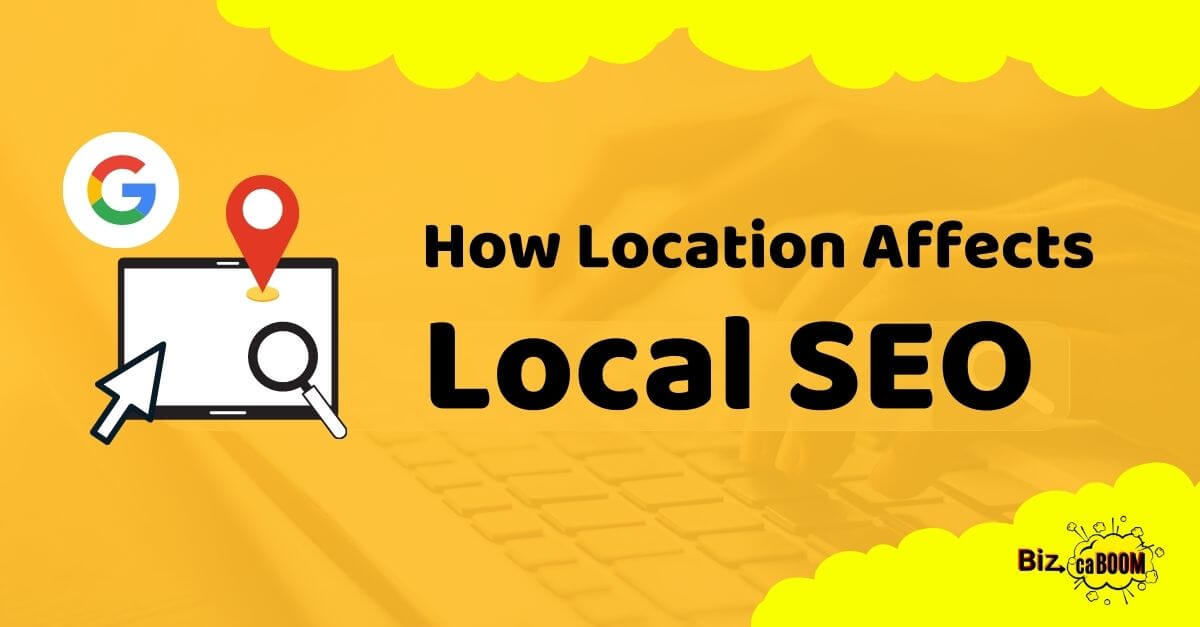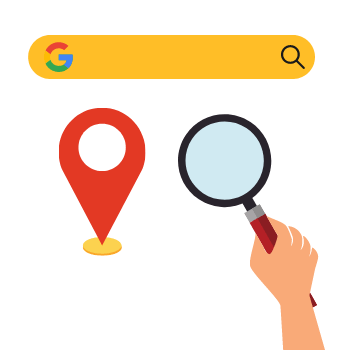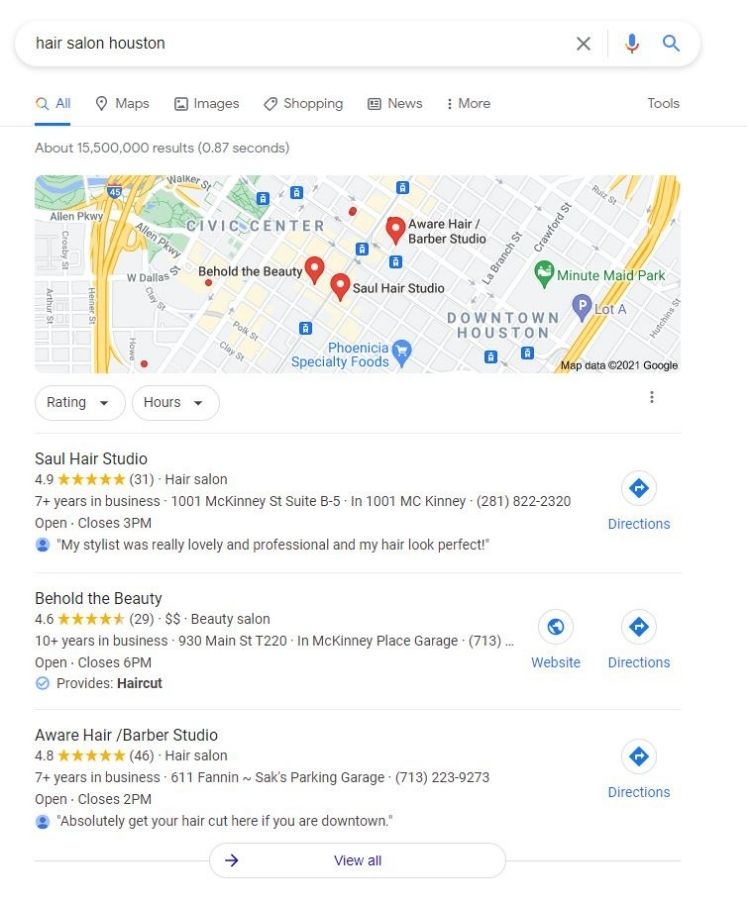
How to Rank Number One on Google
How to Rank NUMBER ONE (#1) on GOOGLE | BizcaBOOM The goal of getting to the top of Google’s number one search results is something

Location is a huge factor when it comes to local SEO. When you’re looking at your website from the perspective of someone who lives in the area, it’s important to consider how location affects their perception.
For example, if you provide services for a specific city or town, by showing users that you’re a local business, your website will become more relevant and appealing to users and this is what Google and other search engines ultimately want!

The relationship between location and search ranking is complicated. Location affects the amount of content you have access to, the quality of your backlinks, and even how well-optimized keywords are for local searches.
Location matters a lot when it comes to SEO rankings – but what does that mean? When we talk about “location,” people often think they only need their geographic area in mind:
If an individual business sells something specific like clothes or services, then those locations will be important as far as keyword optimization goes because potential customers may type into Google phrases related with their region such as “clothing stores near me” or “cleaning services near me”.
It’s not just geography, though; many other factors play into this, too, including having access to valuable sources online (such things relating directly to your industry) Google’s search engine has been designed to rank the most helpful websites available.
Among these SEO factors is location (perhaps a physical store location), and this factor can significantly impact your rankings depending on the specific keyword you’re targeting for that ranking campaign.
Location does not just refer to where in the world or country someone lives when thinking about how best to serve their needs – it also includes which city they happen to live in as well as what state and zip code information are listed within Google Maps of all points-of-interest with instructions pertaining specifically toward them being located near users who conduct queries centered around any given geographical area at varying distances away from each other according to an individual query’s contents (miles).
Location is not just a ranking factor that sometimes matters. Searches with local intent use an entirely different algorithm, and locations in other countries can drastically change what people look for to find on the internet.
One thing you want to be careful of is bad backlinks. One way you can check a site’s quality is by downloading the MozBar Chrome extension. When on their website, hover over the page and look at what the Page Authority (PA) or Domain Authority (DA) is next to it–the higher they’re ranked out of 100 means that your link will have more weight on its domain than if either PA or DA were lower ranked/scored.
Look also for Spam Score-if this score is high, then the chances are good that even with an offered backlink from there would not do any favors in helping improve your reputation online.
The link quality is one the most important factor in local search engine optimization, while other factors such as diversity and quantity of links also play a role.
Keywords are vital for anchor text, but these need to be closely monitored about how they’re used on your site because Google can penalize you if it feels that there’s too much manipulation going on.
In the complex world of Google Search, several factors determine your rankings on Google. Understanding these Google ranking factors is vital for anyone hoping to achieve their goal rankings on local search pages and across all other SERPs.
Ever wish you could find a list of the best restaurants in your area with just one click? You’re not alone, and luckily for us, there are online directories like Yelp that make finding what we need much easier.
These sites offer customers an easy way to quickly browse through different types of businesses by type or location so they can compare options. They also allow users to leave reviews which helps others know if it is worth their time and money when visiting these establishments.
Google sees many citation websites as trustworthy sources; therefore, they provide links that allow small business owners to either get started on them or keep up with larger competitors who may have more financial resources at their disposal.
If your business is not accurately represented on the internet, you are at risk of losing potential customers before they’ve had a chance to call or walk in. If you want that this doesn’t happen, contact details should be consistent and accurate across all local listings, so there’s no room for error.
While citation signals may have decreased in their importance overtime when it comes to influencing rankings for competitive keywords and metropolitan areas such as Houston or Los Angeles, they still play an important role in certain aspects such as: ensuring accuracy among consumers by having correct information everywhere; making sure online searchers can find businesses with ease without wasting any more than necessary.
A good reputation can be the difference between a company’s success and failure. You must make sure your business has listings on sites such as Facebook, Yelp, or Nextdoor if it does not already have one to reach high-intent customers looking for businesses like yours.
If these platforms don’t appeal to you, then consider investing time into developing local or industry-specific websites where potential customers may look up businesses of this type from past experiences with them.
One way to make your content more relevant is by including the location in a page’s topic. This includes optimizing keywords like “cleaning services in Houston”, where you clearly define what services they offer and their location.
For instance, if you’re looking for cleaning companies near you, you’ll probably want to target all other cleaning businesses within 10 miles of your location. By making sure you post your physical address on your website and on other citations, this will allow potential customers who live nearby an easy access point for finding out about these local companies that serve them best.
Determining the location of a page can be tricky, but Google uses many different techniques to map your content. Even without adding any information about where you are in the description, they have ways of figuring out what city or state may best represent your business.
Adding a footer with the address for your website will help Google find and understand where you are. This is especially important if there’s content on different pages that could confuse what location they refer to.
Adding an address at the bottom of your webpage can be helpful when it comes time for search engines like Google or Bing, who may not know which city you live in from just looking at individual page addresses, to realize where your site resides geographically so users don’t get confused about locations while browsing around.
The Google algorithm is constantly changing, so you need to stay on top of what works best. The structured schema will help the search engine understand your website better and rank higher in searches.
Google looks at how well a webpage structures information when determining its ranking; use structured schemas optimized with keywords as much as possible so that Google can properly assess them!
Suppose your site represents a traditional “brick and mortar” business that does face-to-face customer service in person. In that case, it is crucial for ranking to include all of the information about you on your website and all the locations you may have.
Google uses your location to provide you with the most accurate information possible.
This is particularly evident if you have a Google Business listing, which will tie both the site and any listings associated with it to an address for more accuracy. With this, you can achieve a higher ranking and get your listings in the most relevant local 3 packs.
Google takes the user experience into account when ranking pages. If a page does better in one region than others, depending on the click-through rate and bounce rates of that state, Google will adjust their rankings accordingly to show it as more relevant for those users.
You can see an example of this when looking at city keywords where you might find different results between states because they have had significantly higher or lower numbers clicking through from local searches, proving how important user data is! Google found that a website’s relevance to each state can be determined through the bounce rate.
The higher the percentage of people bouncing off your site, the less it is deemed irrelevant for users in the said area and will rank lower on search engines.
A new study conducted by Google has shown how one’s likelihood of clicking out after visiting a webpage correlates with their geographical location and other factors such as demographic information or device being used.
Local organic searches vary from non-local searches, but that doesn’t mean location is irrelevant. When you compare across countries with different locations and geographical properties such as population density or climate variation, location always has some effect on what you see online.
With the power of Google, your search results are personalized for you. You get different information about Steve Smith depending on where in the world you live! In America, he is an NFL wide receiver, and from Australia, he’s a cricketer.
Depending on how close to home we’re searching, our interests change too-in American culture; football reigns supreme, while in New Zealand, rugby rules all.
No matter whom it may be, though, something that remains true across countries? Whether they have two arms or four paws: animals make us smile just as much everywhere else around the globe!
The same person can see different results when they search for something based on where they are. It isn’t just a matter of country differences, too — rankings will change dramatically whenever someone asks Google about someplace new.
Google’s AI algorithm uses our location to help us understand what we are looking for. The search results will be influenced by the type of information you want, so if Google thinks that distance is less important, then it would show a wider range of options that might not have been as close before.
It’s no secret that search engines like Google want to give you the best results when looking for something. This is why, if you are searching for a brick and mortar business in your area, it will show a map listing of a business near you and not businesses far away from where you live because they may not have any relevance.
You don’t need someone who is located 100 miles from you. Moz found that distance from the address is the number one ranking factor for its 3 pack. Moz also found that city and zip code factors were among some of their most important rankings for organic results.
Even if your site has been optimized pretty well in other areas, not including these local-intent keywords will make rank on page 1 nearly impossible. To see how your location affects ranking, try searching for it yourself.
Which websites come up in Google? How close are they to you physically? If results from another state show up and you’re getting a lot of them like I am, then the chances are that the keyword can rank well all over the place!
There are two other things to know about how location affects search ranking. The local pack and country domain extensions both play a notable role in your business’s prominence on Google, as well!
The Local Pack is an exclusive list of maps for various cities that shows up at the top when searchers enter their city name into the search bar.
If you’re not showing up here, it means people will have to go through pages and pages before they find your company which can lead them to abandon their searches altogether due to frustration with navigating around so many results – don’t let this happen!
Country Domain Extensions work similarly by displaying all websites from within one specific nation or region in order of relevancy. The 3-pack appears before the usual search, and local businesses need to rank there!
It’s the first thing a local user sees. It’s vital in 2021 to rank on Maps because if you are local, your listing will receive many clicks from local users.

The local pack gives most weight to the following factors: how far away your business is from where people are searching for products/services, what type of service you offer (i.e., restaurant, hair salon), and whether or not you have a completed profile on Google My Business.
Don’t forget that ratings count too-but even with good reviews online, and if there’s no one in your zipcode looking for services like yours, then it doesn’t matter!
The experts at Local Pack suggest considering these three main points when trying to rank higher on their site: which category best fits my product/service offerings? How close am I relative to the search position?
Have I made sure my company has complete information listed so customers can find them easily offline? But remember that location is the number #1 Factor! The more common your domain extension, the better it is for ranking in other countries.
For example, if you use a “.us” country-specific domain extension on your site but want to rank well internationally, such as with Google’s search engine results page (SERP), then stick with “com.” or perhaps one of its variations like “net,”—”org.,” and so forth. Even if you are local, the best choice is to stick with the usual domain extensions.
If you want to take advantage of location search factors, there are a few tips that you need to follow.
1. You can increase your search engine visibility by creating a Google My Business page and filling it out as completely as possible. Additionally, be sure to populate your website with lots of content that reflects your offer’s services. Include reviews, services, areas.
2. Even if you don’t do business face-to-face, make sure your address is listed in the footer of your website (for robots to read).
3. Consider creating a location page for your services with the city or state in the keyword if someone searches by that specific designation.
4. Make sure your business profile is updated as situations change, and take advantage of their posts feature.
These are some of the best ways to improve your local rankings. You can increase traffic by more than just relying on Google, and that will help you rank in nearby locations or nationally.
It’s important to think about where your business is located when it comes to search ranking because location can be just as influential a factor on SEO rankings. It may not get the same glamour and attention as backlinks or content quality, but you shouldn’t forget this key element!
“Location affects search ranking as much as any other ranking factor.” You don’t have full control of site speed and international reach with SEO strategies – one that you do have some power over is location.

If you ever need a helping hand in getting your Houston company at the top of Google, look no further and book a call with BizcaBOOM, an SEO Company in Houston, so that you can get more calls coming in. Or if you’re in need of a professional web designer in The Woodlands, feel free to contact us here.
Now that you have learned SEO is important for your Houston business, why not share this post with your friends?
Spread the word out so we can continue to give you valuable SEO content!
Recent Articles:

How to Rank NUMBER ONE (#1) on GOOGLE | BizcaBOOM The goal of getting to the top of Google’s number one search results is something

How to Choose the Right Keywords for SEO Purposes | BizcaBOOM One of the most critical aspects of good search engine optimization is choosing the

Is SEO Better than Google Ads? SEO vs Google Ads Many businesses use marketing techniques such as search engine optimization (SEO) and Google Ads to

How to Rank NUMBER ONE (#1) on GOOGLE | BizcaBOOM The goal of getting to the top of Google’s number one search results is something

How to Choose the Right Keywords for SEO Purposes | BizcaBOOM One of the most critical aspects of good search engine optimization is choosing the

Is SEO Better than Google Ads? SEO vs Google Ads Many businesses use marketing techniques such as search engine optimization (SEO) and Google Ads to
Tell us about your company: